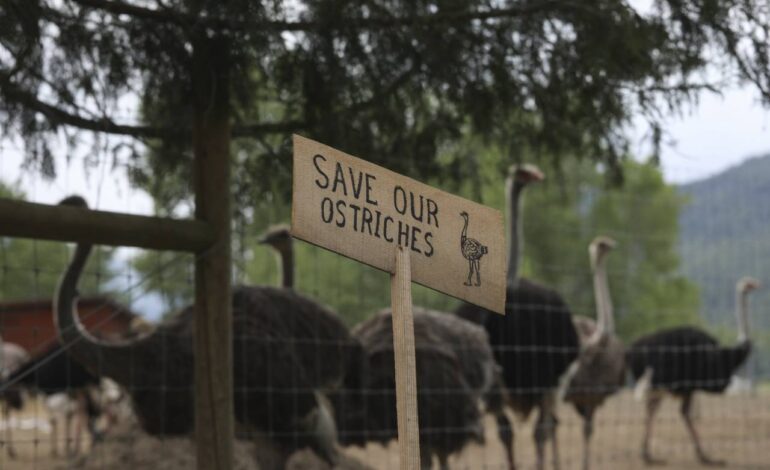Canada Plans to Euthanize 400 Ostriches Amid Avian Flu Outbreak

The Canadian government is set to euthanize approximately 400 ostriches in response to an outbreak of avian influenza. This decision has sparked significant backlash, particularly from U.S. officials, including Robert F. Kennedy Jr., who are advocating for the preservation of the birds.
Officials with the Canadian Food Inspection Agency announced that the culling is necessary to prevent the further spread of the virus, which poses a threat to both domestic and wild bird populations. The decision comes after a recent increase in avian flu cases in Ontario, raising concerns about the safety of poultry and other avian species across North America.
Opponents of the culling argue that euthanizing these ostriches is an extreme measure. Advocates for animal rights, including Kennedy, have raised alarms over the potential implications of this action, emphasizing that alternatives should be considered. They believe that culling can lead to unnecessary suffering and may not be the most effective way to manage the outbreak.
In a statement released on March 15, 2024, Kennedy expressed his concerns, highlighting the need for more humane approaches to animal management. “We must explore every avenue to protect these animals and ensure the integrity of our wildlife,” he said. His comments reflect a growing sentiment among animal welfare activists who are calling for greater transparency and ethical treatment in handling wildlife diseases.
The avian flu, which can be highly contagious, has been a persistent issue affecting various bird populations globally. The current strain identified in Canada is particularly virulent and has prompted stringent biosecurity measures at farms and poultry operations. Reports indicate that multiple farms in Ontario have been affected, leading to heightened surveillance and testing protocols.
The Canadian government has defended its decision, stating that the culling is essential to safeguard public health and the agricultural industry. The potential economic impact of an uncontrolled outbreak could be significant, affecting not only avian populations but also the broader agricultural sector. The government has emphasized its commitment to balancing animal welfare with public health needs.
Kennedy and other advocates are now rallying support to halt the culling, urging the Canadian government to consider alternatives such as vaccination programs or enhanced biosecurity measures. They argue that these strategies could mitigate the risk of disease spread without resorting to euthanasia.
As the situation unfolds, the debate surrounding the culling of the ostriches highlights the complex interplay between public health, agricultural practices, and animal welfare. The outcome of this dispute may set a precedent for how similar situations are managed in the future, not only in Canada but also in other countries facing similar challenges with avian influenza.
The culling of the ostriches is scheduled to take place within the coming weeks, pending further assessments by health officials. Stakeholders from both sides of the debate are closely monitoring developments, advocating for their respective positions as the discussion continues to gain traction internationally.






